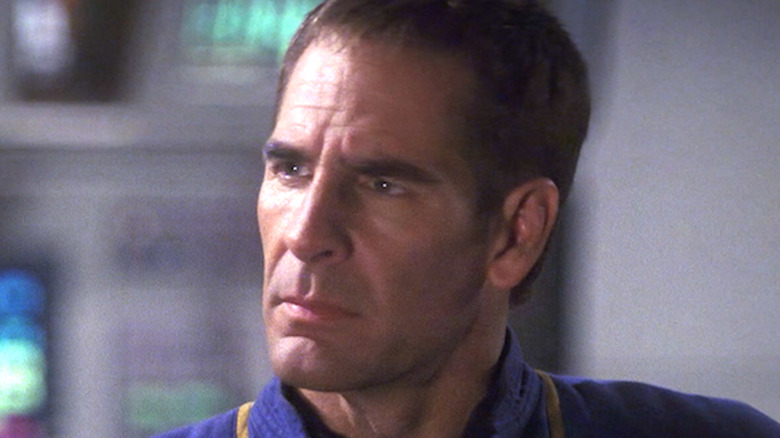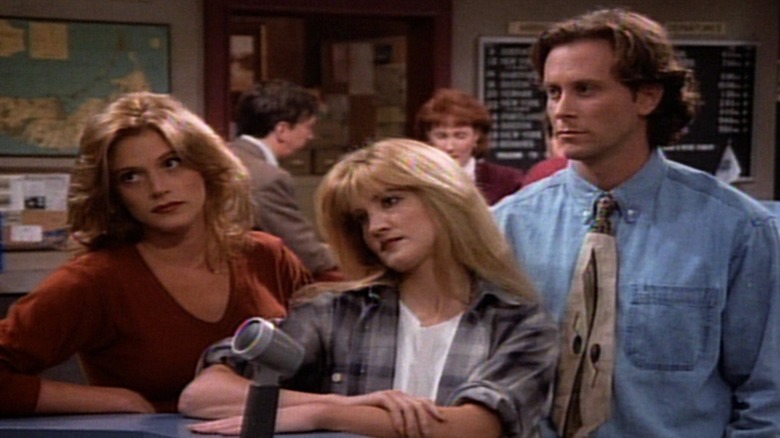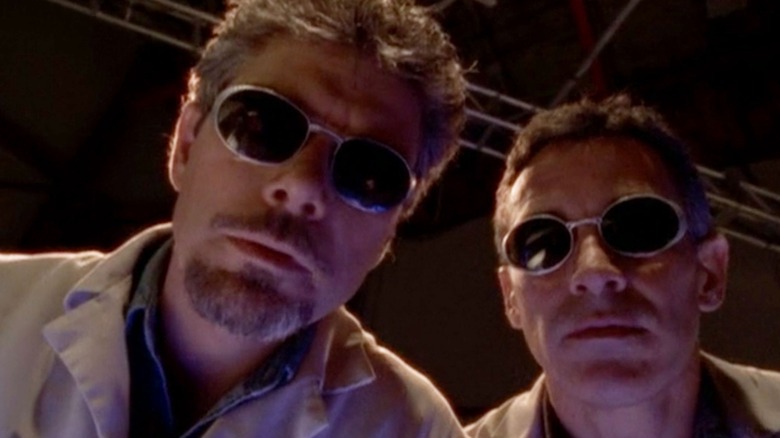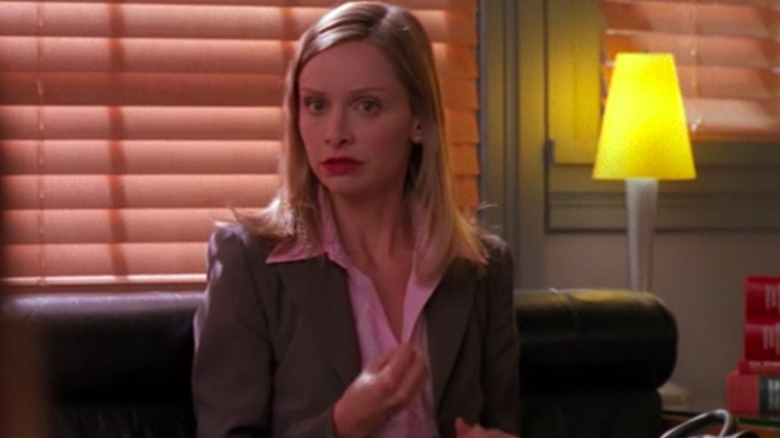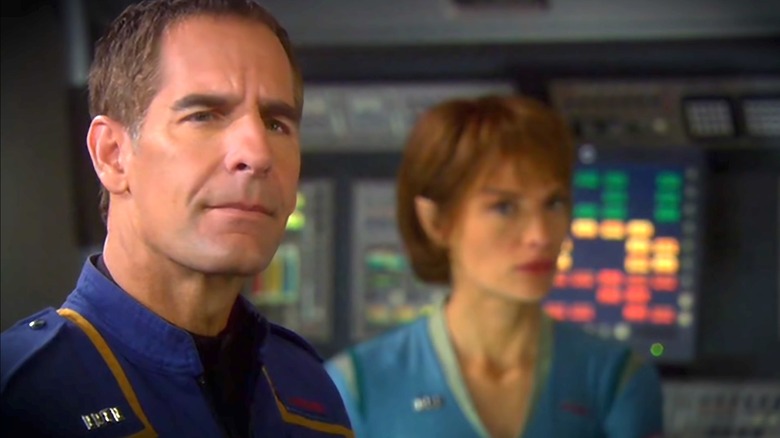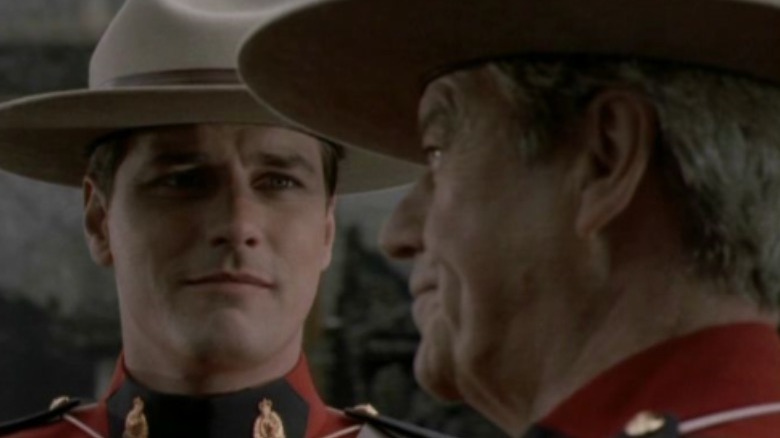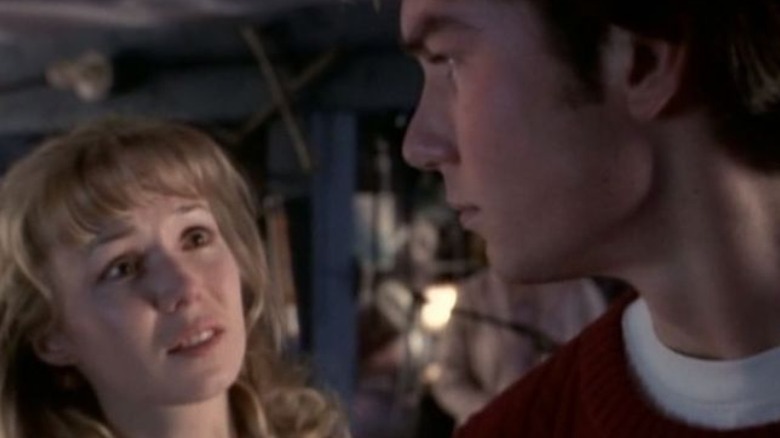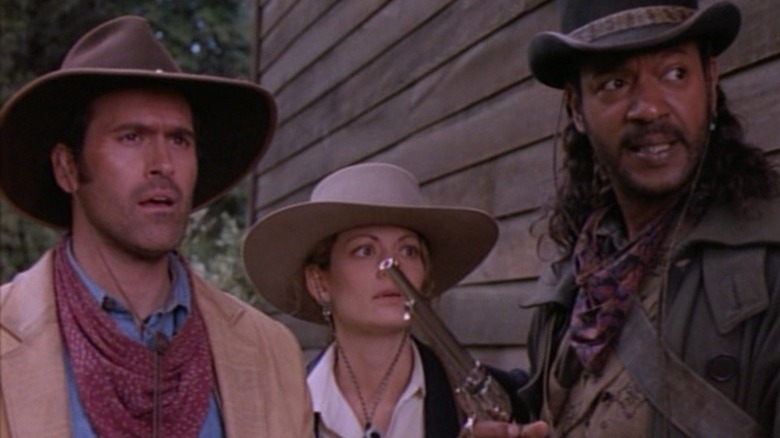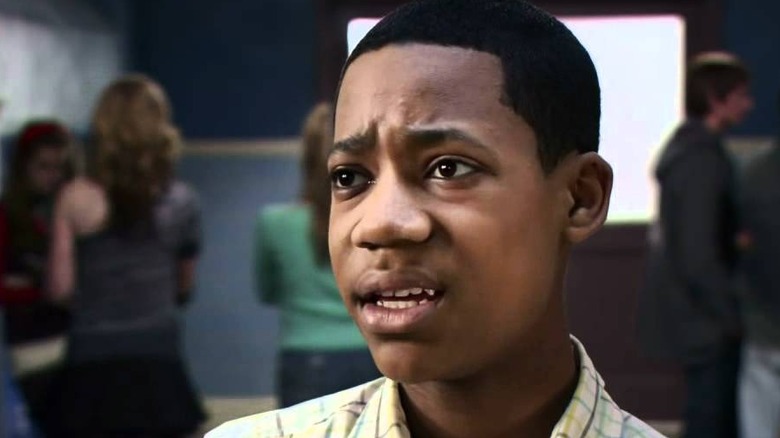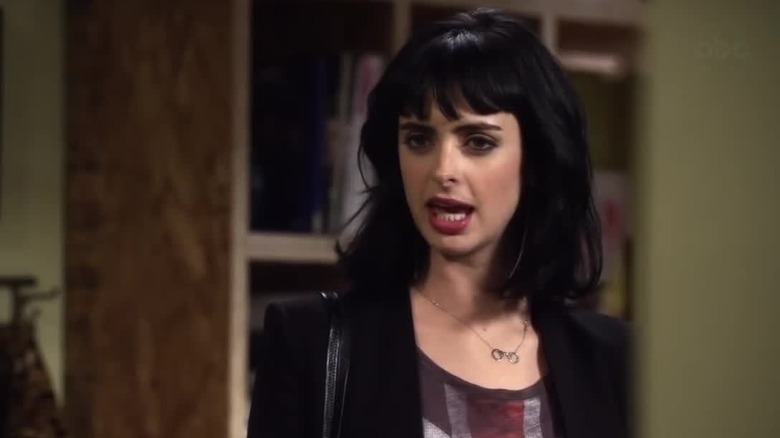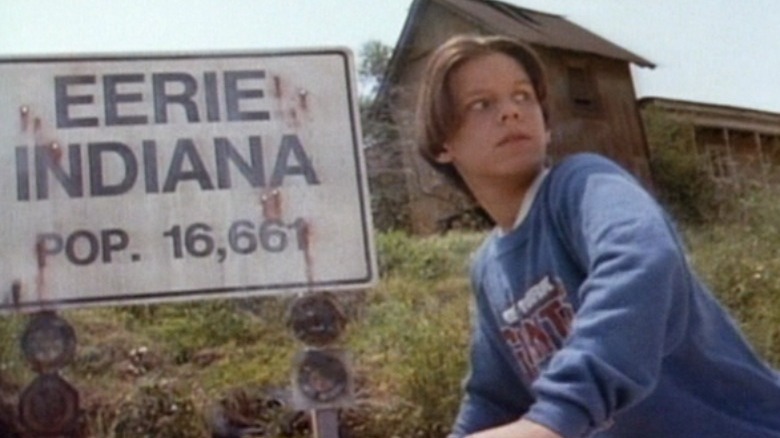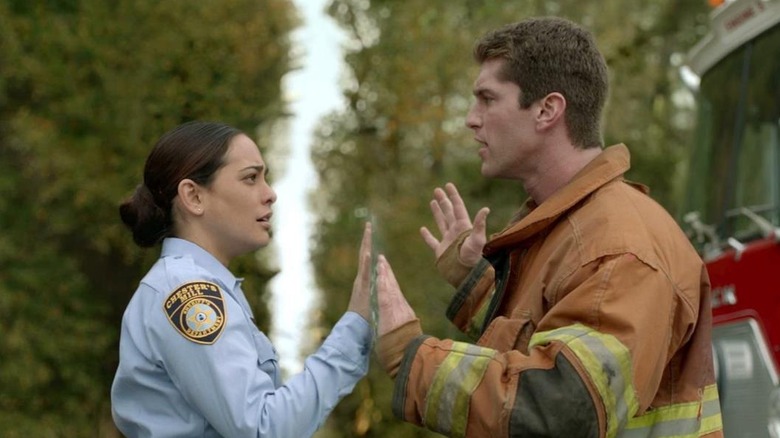TV Shows That Are Better Than You Remember
Thanks to the wealth of streaming services at our fingertips, from Netflix and Amazon to Hulu and Paramount+, it's easier than ever to go back and rewatch old favorites. Fans can find long-lived hits, short-lived misses, forgotten gems, and everything in between.
Some shows are just as good as you remember them, but plenty are far more disappointing — relics of their era and not nearly as good as we might have thought when they were new. However, now and then, you come across a show that previously felt like it was just comfort food — an empty joyride or silly comedy — that is much better than you remember.
Some are smarter and better written than they're given credit for. Others are funnier or more exciting during a modern rewatch than you might have expected. While none of the shows on this list are likely to ever appear on a best-of list anytime soon, they're nonetheless more enjoyable than anticipated. So let's take a look back at some of the shows that don't just hold up well but are even better than we remember them.
Wings
Running from 1990 to 1997, "Wings" crossed through three generations of television, having premiered when 1980s comedy classics like "The Cosby Show" and "Cheers" reigned supreme and ended just a year before "Friends" succeeded "Seinfeld" as the top comedy on the air. Though it never did reach anywhere close to the level of success as those other greats, it was a mainstay of prime time comedy throughout the 1990s and helped bring stars like Thomas Haden Church and Tony Shalhoub to fame. A number of notable guest stars passed through its doors, including Debbie Reynolds, Kelsey Grammer, and Jonathan Frakes. Despite never being a top hit, the show was never a dud either.
A strong if broad comedy, it may never have been quite as sharp or as quick as other sitcoms of its day. However, when viewed today you'll find a show that is nevertheless high on laughs, with humor that — while sometimes dated — still works. The writing is crisp, with subplots that often intersect with the A story in unexpectedly clever ways. However, it's the show's surprising amount of heart that earns it high marks and makes it an enduring classic.
Unlike so many '90s comedies that were far more cynical, "Wings" was an uplifting, genuinely heartfelt show about found family, with an emotional core and sincerity that was often lacking in the day. Episodes were often genuinely moving, with touching moments that still managed to shine through even when surrounded by broad, zany comedy.
The Outer Limits (1995)
The 1995 version of "The Outer Limits" often gets a bad reputation thanks to living in the shadow of its legendary parent series. Despite this, the reboot was a surprisingly effective sci-fi anthology all on its own.
While comparisons to the original 1960's "Outer Limits" were unfavorable, its differences are to its benefit on later rewatches of the series. The first five seasons ran on Showtime, but the series was done no favors when it was shuffled off to the Sci-Fi Channel in 2002, furthering its undeserved reputation as low-quality science-fiction fare. However, "The Outer Limits" featured some great stories, even adapting work from notable authors like George R.R. Martin, Stephen King, and Harlan Ellison. Casting was another shining area. Many current superstar A-Listers made early career appearances, including Josh Brolin, Joseph Gordon-Levitt, Ryan Reynolds, and Michael Rooker.
Aimed squarely at an adult audience (as evidenced by its adult language and nudity), "The Outer Limits" featured episodes of all kinds — from character dramas to high-concept fantasy stories — that were often just as thought-provoking as they were fun and thrilling. Despite its anthology nature, it still somehow found a way to include a handful of stories that were wound together to form an ongoing subplot each season. The special effects were definitely of their era, but it's the stories themselves that help elevate "The Outer Limits" from a forgettable, run-of-the-mill genre show to a memorable anthology with some of the most intriguing stories you'll find this side of "Black Mirror."
Ally McBeal
Audiences who tuned into "Ally McBeal" in the late '90s who were expecting a legal drama akin to creator David E. Kelley's other serious courtroom series such as "The Practice" and "L.A. Law" may have been sorely disappointed. Instead, what they found was something more like "Sex and the City" set in a law firm. Probably best remembered for the dancing baby gif that became one of the internet's earliest memes, many viewers likely only recall the more superficial aspects of the series. These include the title character's sex-obsessed lawyer musings regarding the men she pursued, her quirky asides, and the show's often whimsical daydream sequences. These surface-level elements made McBeal a controversial culture icon, even her getting lampooned on "Futurama."
However, "Ally McBeal" was not the kind of vacuous sitcom about a ditzy, sex-crazed, big-city woman chasing men and using her feminine wiles to get ahead that drew many people's ire. It was also a whip-smart, highly successful comedy with some soap opera elements. It was even a trendsetter ahead of its time, employing a voice-over narration from its star speaking directly to the viewer, which was unusual for the era.
It was also a social statement in itself, a show with a strong female lead and targeted at women. Ally McBeal wasn't the traditional feminist. She was a new kind of woman who lived the way she wanted to live, even if it went against the era's feminist norms. There's nothing more empowering than that.
Star Trek: Enterprise
"Star Trek: Enterprise" has been called the show that killed "Star Trek," as its cancellation in 2005 ended the franchise's 18-year run on television that had begun in 1987 with the first revival, "Star Trek: The Next Generation." While NBC News notes that ratings were cited as a reason for the show's cancellation, it's definitely better than most people give it credit for, as audiences have discovered now that it's been widely available on streaming.
Fans on Reddit point to the series' fourth and final season as a turning point when producer Manny Coto, who had worked on the hit series "24," took the reins and reinvigorated the show with exciting new multi-part stories. However, the first three seasons are not to be overlooked either, with some well-crafted sci-fi stories set in the early days of the "Star Trek" universe.
While the third season took a darker turn, with a storyline inspired by 9/11 and the War on Terror, it also embraced the serialized storytelling technique that was gaining popularity thanks to dramas like "The West Wing" and "The Sopranos." By contrast, the first two seasons were largely self-contained stories, as Captain Archer and the Enterprise ventured out into space, exploring strange new worlds and making first contact with several new civilizations. An ill-conceived mystery subplot didn't serve the series well, but when it explored stories of discovery, hope, and teamwork — like showing the journey to the foundation of the United Federation of Planets — the series soared.
Due South
Created by Paul Haggis, whose prior work included "Walker, Texas Ranger," the NBC series "Due South" starred Paul Gross as Canadian Mountie Benton Fraser. In the pilot, Fraser travels to Chicago to investigate the murder of his father and gets far more than he bargained for. After solving the case and uncovering a larger conspiracy that he thwarts with the help of local Chicago police officer Ray Vecchio (David Marciano), the mismatched duo eventually becomes an odd couple crime-fighting team in the Windy City.
The show works surprisingly well, mixing the weekly police procedural of "Law & Order" with offbeat comedy built around the strong friendship of its two lawmen. Paul Gross as a modern-day Dudley Do-Right and Marciano as the seasoned American detective is an unexpectedly successful twist on the mismatched buddy cop formula. In a more fantasy style twist, Fraser is also accompanied by a white wolf who possesses an oddly human intelligence, and is sometimes visited by the ghost of his dead father, adding some high-concept flare to the police proceedings that would be echoed in later shows like "Monk" and "Psych."
Unfortunately, "Due South" never found much success in the U.S., and it was canceled by NBC after its first season, per the Chicago Tribune. Thankfully, it found new life abroad in the U.K. when BBC Studios stepped in to finance three more seasons. It later found a devoted cult following while in reruns on American cable, with Paul Gross becoming a fan favorite.
Sliders
In the wake of "The X-Files" changing the way sci-fi TV worked, fringe science fiction shows were having a moment of renewed interest on the airwaves. One such show was 1995's "Sliders," a series about a young man who builds a device that allows him to travel between an infinite number of parallel realities, each with their own unique histories. In the first season opener, he sets out to explore these other realms with three friends who promptly get lost, and the series sees them on a journey across the multiverse to find their way back home. In its own way, the series was a kind of anthology, introducing viewers to a new world every week, each with its own unique characters and often its own rules.
Unfortunately, the series was never a big hit and was seen as a lesser show that lacked the serious drama or charismatic stars of "The X-Files." It was an odd mix of family-friendly stories with a touch too much of the bizarre to make it palatable for most audiences. Later seasons tried to fix this by introducing an ongoing alien invasion story that added the darker tone, action, and thrills of other more adult shows, but didn't translate to better ratings. It ran for five seasons and featured many stories that are almost more interesting today, with modern rewatches revealing what Inverse called a "criminally underrated" series with a unique premise that was well ahead of its time.
The Adventures of Brisco County, Jr.
"The Adventures of Brisco County, Jr." was a new series in 1993 from creator Carlton Cuse, who would create "Lost" a decade later — that offered a clever twist on the classic wild west formula. It was led by "Evil Dead" star Bruce Campbell as a snarky bounty hunter out to avenge the murder of his father. Campbell was surrounded by a group of allies that included a brilliant scientist, who was often responsible for the show's uniqueness. While Campbell brought his usual charisma to the series' title character Brisco County Jr., Julius Carry played Lord Bowler, an inventor who supplied his friend Brisco with all manner of anachronistic technology that included tanks, zeppelins, and even a fingerprint device.
A mix of classic Western adventure, a little camp, and a handful of sci-fi tropes, the series failed to find an audience and was canceled after one season. Looking back, it's not hard to see why it became a cult favorite, as it has a lot in common with "Firefly," another cult hit that mixed elements of western, comedy, and science fiction. However, in the '90s, such period shows just weren't the draw that they are today. Mixing in sci-fi probably didn't help, as most viewers seemed to have skipped right over it. But those that tuned in saw one of the funniest, most clever westerns ever put to screen, and fans of off-kilter sci-fi today should find plenty to enjoy.
Everybody Hates Chris
It's not hard to find fans on Twitter that feel "Everybody Hates Chris" is not discussed enough and deserves more attention — and we're certainly not going to disagree. "Everybody Hates Chris" aired from 2005 to 2009 on UPN, and later on The CW after its first season. The series, created by comedian and actor Chris Rock, was inspired by Rock's own life and his childhood growing up in the 1970s, although the series itself was set in the mid-1980s. One of the few Black sitcoms to be told from the perspective of a younger generation, its title was a clever play on the popular sitcom "Everybody Loves Raymond," in which the star was beloved by his family and friends.
Though well-received by critics such as Slate during its airing, it manages to be even better today. If you tune in to binge on a streaming service, you'll be scratching your head wondering why it was ever given the axe. Far better than other, longer-running shows of its type, it's unclear why the show wasn't more of a success in the mid-2000s. Thankfully, history has been kind to "Everybody Hates Chris," with it garnering recent attention that helped it receive a green light for an animated reboot reportedly in the works from CBS Studios.
Don't Trust the B--- in Apartment 23
A short-lived gem, "Don't Trust the B—- in Apartment 23" is probably best recognized today as one of the first starring roles for "Marvel's Jessica Jones" actress Krysten Ritter. However, the series also happens to be one of the most underappreciated 2010s, with biting comedy that made it "sitcom gold," according to a recent look back by The Guardian.
If one is looking for a point of comparison, think of the series as a meaner, snarkier, and more cynical version of Fox's longer-lived "New Girl," with Ritter as a more jaded version of Zooey Deschanel's Jessica Day. At the time, it was advertised as a star vehicle for "Dawson's Creek" actor James Van Der Beek — who plays himself in a meta role that feels ahead of its time — but it was Ritter who made the series.
It begins with June, a young woman who finds herself in over her head when she moves to New York City and discovers her job has disappeared and her boyfriend is unfaithful. She moves in with Chloe, played by Krysten Ritter, who excels at driving out roommates with her crazy antics. Its distasteful humor may have rubbed some viewers the wrong way, but it's also what set it apart from so many other sitcoms. What you may recall from 2012 might be its mean-spirited nature, but today, it feels right at home.
Eerie, Indiana
Launching two years before the "The X-Files" became a cultural touchstone, "Eerie, Indiana" was billed as a kids version of a paranormal procedural along the lines of R.L. Stine's "Goosebumps." The show centers on the boyhood adventures of a pair of best friends living in Eerie, Indiana. In the series, the two buddies, Marshall and Simon, investigate the odd goings-on in their hometown of Eerie, which includes everything from a pair of seemingly immortal twins to an outbreak of brainwashing by an ego-maniacal business magnate known simply as "The Donald."
Not always the silly kids fare it may have seemed, the series was full of genuinely creepy stories, mind-bending twists, and horrifying reveals that would have made "The Twilight Zone" proud. However, its real charm was accurately capturing the relatable — if bizarre — childhood adventures that kids dreamt up for themselves in the days before the internet.
Perhaps a little too weird and disturbing for the child audience it was aimed at when it first aired, it lasted only a single season. In reruns, however, it grew enough of a cult following that Fox resurrected the series five years after its cancelation for a revival/spin-off called "Eerie, Indiana: The Other Dimension." This follow-up series couldn't live up to its predecessor, though, and it too lasted just one season, but viewers today might appreciate the old-school approach to the paranormal.
Under the Dome
From horror icon Stephen King came "Under the Dome," a show that first aired on CBS for three seasons starting in the summer of 2013. The first season deals with the aftermath of a small town that suddenly finds itself surrounded and encapsulated within an impenetrable dome from which they cannot escape. The series chronicles the attempts of a diverse group of people inside to uncover the secret of the dome and find a way out, as well as the personal drama that emerges within its borders.
Billed as a prestige event mini-series, the show may have been seen as a copycat of similarly themed shows like "Revolution" or "Lost" about communities of survivors of some mysterious event. It didn't receive the best reviews, as can be seen on Rotten Tomatoes, but it managed to be renewed. The last half of the show, unfortunately, brought a lesser set of stories and unsatisfying answers to the series' many mysteries, which is probably what most viewers remember. As the numerous plot threads dragged on, many of them couldn't be sustained and fizzled.
However, its debut season and most of its second contained some of the best mystery drama of the early 2010s. The twists and turns will keep you on the edge of your seat as you try to piece together the puzzle alongside the characters. It won't win any awards, but it's well worth a second look a decade later and is better than you might remember.
